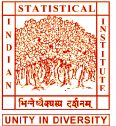“No Pass No Drive” (NPND) laws deny or revoke driver’s licenses to minors if they drop out of school, are frequent truants, show behavioral problems, or have a low academic performance. Using Federal Bureau of Investigation (FBI) arrest data, we exploit state, time, and cohort variation to show that NPND laws are associated with a significant decline in total crime, DUI and property crimes among 16 to 18 year old males, and in DUIs among 16 to 18 year old females. We argue that NPND laws are a relatively low cost policy alternative to compulsory attendance laws that increase education and generate positive externalities. To explore unreported in-school crimes, we use micro data from the Youth Risk Behavior Survey (YRBS) and find that NPND laws decrease in-school risky activities. However, we also find that they have unintended consequences for in-school risky behavior when accompanied with strict academic or behavioral requirements.
Publication
“Wheeling into school and out of crime: Evidence from linking driving licenses to minimum academic requirements”
- Journal of Economic Behavior & Organization
- Volume 217, Pages 334-377
- # Others
- Rashmi Barua
- , Ian Hoefer-Martí
- , Marian Vidal-Fernandez


